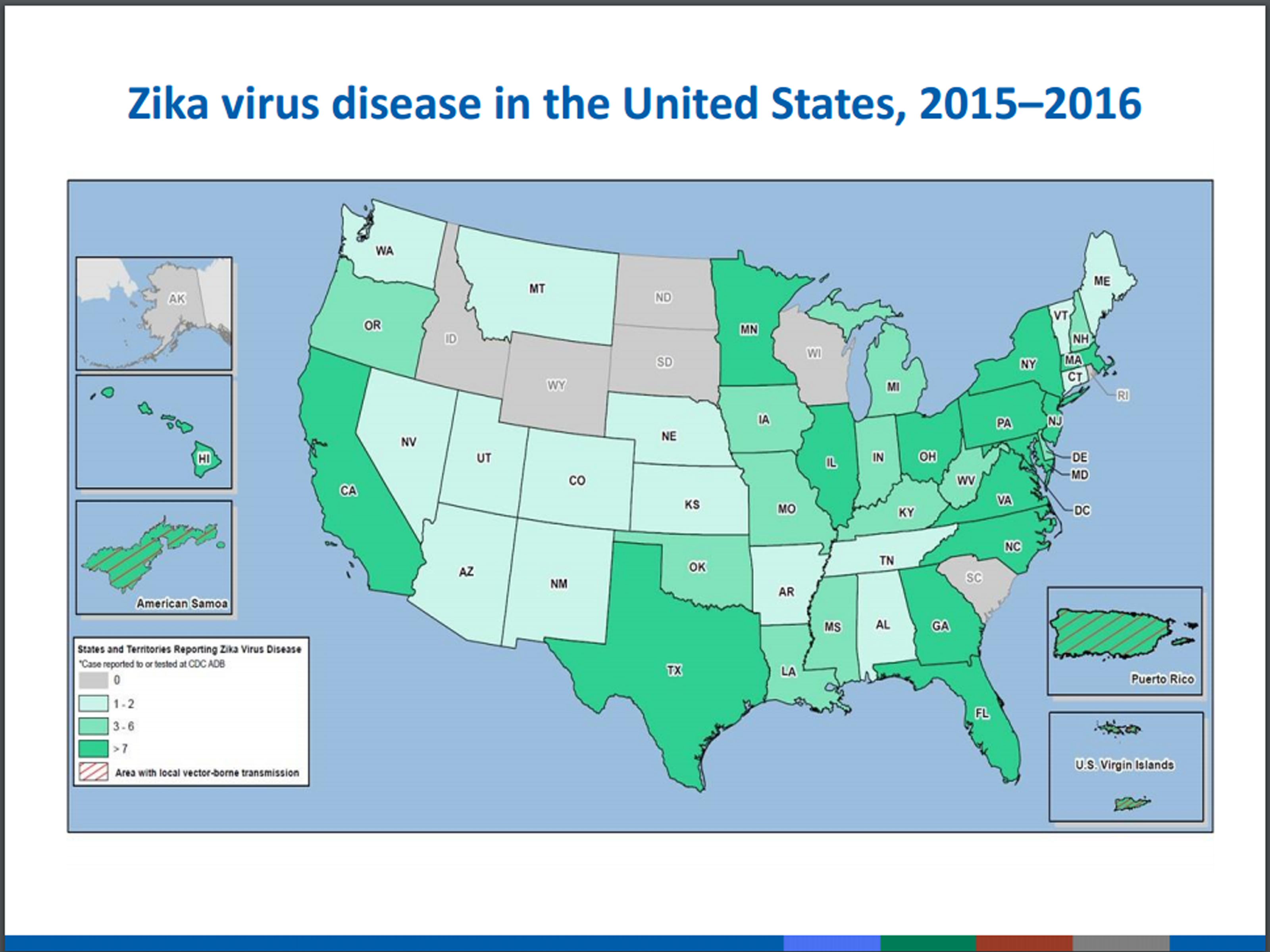
“We’re more and more alarmed by what we’re learning. Zika is not a very serious disease for most people, in fact some people may never know they have it,” Debra Lubar, director of the Center of Disease Control (CDC) Office of Appropriations, said at Brookings this week.
The CDC official was speaking at an event to mark the release of the spring 2016 issue of
The Future of Children
, which examines the various effects of climate change on children. Lubar provided a keynote address on the effects of global warming on the spread of disease. Her address outlined several important facts about the spread of the Zika virus throughout the Americas, and what to expect now that mosquito season has begun:
- This is not a serious virus for most people, the exception being pregnant women.
- Zika will likely infect fewer people in the United States than in South and Central American countries, due to lower population density and infrastructure like air conditioning.
- There are already over 400 reported cases in the continental U.S. – though every case is resulted from travel.
- Cases of Zika are likely to rise in hot and humid areas, mainly in the southeastern United States.
- There are already hundreds of cases of Zika in Puerto Rico, including 65 pregnant women, whom the CDC is monitoring.
In addition, Lubar said the CDC is requesting an additional $743 million from Congress to fight the Zika virus. This funding would be used to prevent the virus from spreading, support response efforts in places like Puerto Rico, and begin long-term studies. The U.S. government would also help to expand public education campaigns, Lubar said—citing outreach in Puerto Rico—which help pregnant women lower the risk of contracting Zika.
Learn more about information about the link between
climate change and disease-carrying mosquitoes
, an issue already affecting the world’s children. And watch Lubar’s remarks below, or get full audio and video on
the event page
.
The Brookings Institution is committed to quality, independence, and impact.
We are supported by a diverse array of funders. In line with our values and policies, each Brookings publication represents the sole views of its author(s).




Commentary
Here’s what the CDC is doing about the Zika virus
May 6, 2016